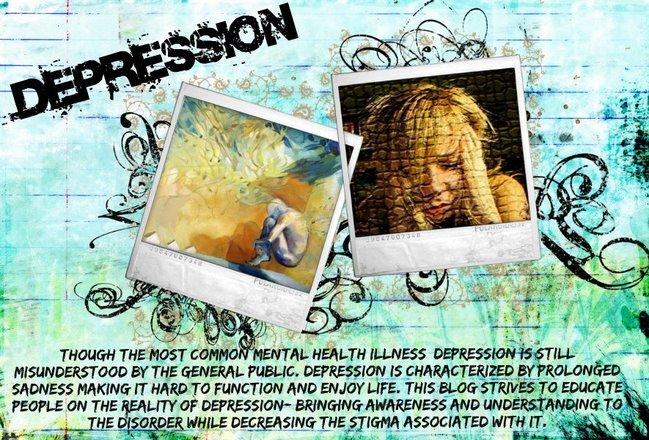
Many psychological problems can be traced to negative thinking. When persons are stressed, it is not always as a result of situations that happen to them. Negative thoughts are especially likely to occur when persons are by themselves, in boring situations, or doing something that takes no effortful thinking. Automatic negative thoughts in depression seem absolutely realistic and true, but most of the time they are unrealistic.
It is important to realize that thoughts are not the same thing as reality. In depression, people tend to think in ways that exaggerate or otherwise distort situations. This is not done on purpose. It results from their strong emotions and from certain habitual ways of thinking. People with depression do not want to think negatively, but their brains tend to anyway. It is important for people suffering from depression not to deepen their depression by further blaming themselves for their illogical thinking.
It is also important that any distorted automatic negative thoughts not be allowed to swarm and create psychological havoc. Rather, they need to be confronted as being illogical. Simply avoiding them is not a useful strategy. If a person's depressive thoughts are overwhelming, it is important to challenge them when the person is feeling at their strongest, like during the day. In the middle of the night, when some persons feel most vulnerable, it may be better to use other strategies such as thought stopping.

People suffering from depression fixate on a cause and on a cure. The truth is the conscious depressed mind cannot, from within, determine either the cause or know the cure of depression. The need for immediate relief can become so strong that they may use physical pain in order to gain a small respite from the psychic pain of depression. People with depression want negative feedback.
They seek, remember and rationalize the negative and forget or discount the positive. If forced upon them, the positive will anger and/or hurt them. Those suffering from depression think that their problems and pain are unique; they feel that they are all alone, and many times when first becoming depressed the symptoms of depression make them feel as though they are going crazy. They can feel all alone in the midst of a supportive congregation at church, or in the midst of a loving family.
Family and friends wanting to help someone suffering from depression can be helpful in:
- Learning all they can about depression
- Learning all they can about the programs or aid for depression within their community
- Being a friend
- Learning to communicate with them
- Encouraging and help them to strengthen themselves physically, mentally and emotionally as much as possible
- Helping them explore options which will eventually get them the help they need

Other things family and friends can do include:
- Taking a walk with them
- Making eye contact with them – People suffering from depression have problems initiating and maintaining eye contact with others, make sure you do not initiate eye contact while making a strong point in the conversation as it might be viewed as confrontational, hostile, or even demeaning. Attempts to make eye contact should be made when you are showing that you understand and care about what they are going through.
- Giving them a hug – The hug should be comfortable for both of you, not strained or forced.
- Showing empathy – You cannot know what they are feeling or experiencing unless you genuinely listen to them without being judgmental or overly directive. Although their emotions and feelings might seem foreign to you, for them these feelings are real and can be justified given their experiences and the emotions caused by the depression.
- Helping with tasks - It will sometimes be difficult to convince your friend that you should help them with tasks procrastinated. Have a frank discussion of what needs to be done, possible underlying reasons why things remain undone, and what you might do to help them. Gentle reminders of upcoming events or commitments will be helpful if you take care not to badger or nag them into doing something.
Information gathered from drbeckham.com and have-a-heart.com